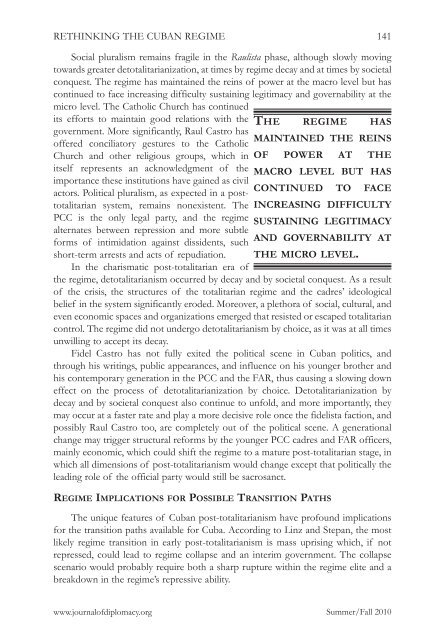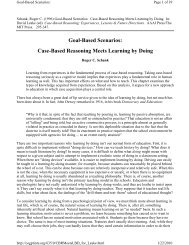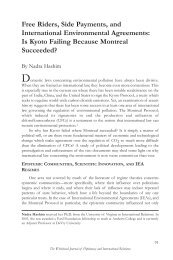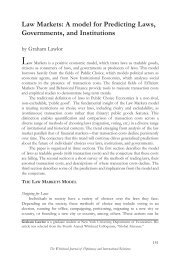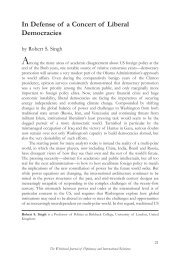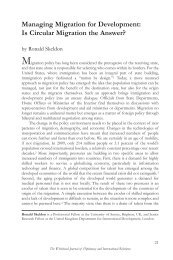Rethinking the Cuban Regime: Implications for Transition Paths and ...
Rethinking the Cuban Regime: Implications for Transition Paths and ...
Rethinking the Cuban Regime: Implications for Transition Paths and ...
You also want an ePaper? Increase the reach of your titles
YUMPU automatically turns print PDFs into web optimized ePapers that Google loves.
REThInkIng ThE CUbAn REgIME<br />
Social pluralism remains fragile in <strong>the</strong> Raulista phase, although slowly moving<br />
towards greater detotalitarianization, at times by regime decay <strong>and</strong> at times by societal<br />
conquest. The regime has maintained <strong>the</strong> reins of power at <strong>the</strong> macro level but has<br />
continued to face increasing difficulty sustaining legitimacy <strong>and</strong> governability at <strong>the</strong><br />
micro level. The Catholic Church has continued<br />
its ef<strong>for</strong>ts to maintain good relations with <strong>the</strong><br />
government. More significantly, Raul Castro has<br />
offered conciliatory gestures to <strong>the</strong> Catholic<br />
Church <strong>and</strong> o<strong>the</strong>r religious groups, which in<br />
itself represents an acknowledgment of <strong>the</strong><br />
importance <strong>the</strong>se institutions have gained as civil<br />
actors. Political pluralism, as expected in a posttotalitarian<br />
system, remains nonexistent. The<br />
PCC is <strong>the</strong> only legal party, <strong>and</strong> <strong>the</strong> regime<br />
alternates between repression <strong>and</strong> more subtle<br />
<strong>for</strong>ms of intimidation against dissidents, such<br />
short-term arrests <strong>and</strong> acts of repudiation.<br />
In <strong>the</strong> charismatic post-totalitarian era of<br />
<strong>the</strong> regime, detotalitarianism occurred by decay <strong>and</strong> by societal conquest. As a result<br />
of <strong>the</strong> crisis, <strong>the</strong> structures of <strong>the</strong> totalitarian regime <strong>and</strong> <strong>the</strong> cadres’ ideological<br />
belief in <strong>the</strong> system significantly eroded. Moreover, a plethora of social, cultural, <strong>and</strong><br />
even economic spaces <strong>and</strong> organizations emerged that resisted or escaped totalitarian<br />
control. The regime did not undergo detotalitarianism by choice, as it was at all times<br />
unwilling to accept its decay.<br />
Fidel Castro has not fully exited <strong>the</strong> political scene in <strong>Cuban</strong> politics, <strong>and</strong><br />
through his writings, public appearances, <strong>and</strong> influence on his younger bro<strong>the</strong>r <strong>and</strong><br />
his contemporary generation in <strong>the</strong> PCC <strong>and</strong> <strong>the</strong> FAR, thus causing a slowing down<br />
effect on <strong>the</strong> process of detotalitarianization by choice. Detotalitarianization by<br />
decay <strong>and</strong> by societal conquest also continue to unfold, <strong>and</strong> more importantly, <strong>the</strong>y<br />
may occur at a faster rate <strong>and</strong> play a more decisive role once <strong>the</strong> fidelista faction, <strong>and</strong><br />
possibly Raul Castro too, are completely out of <strong>the</strong> political scene. A generational<br />
change may trigger structural re<strong>for</strong>ms by <strong>the</strong> younger PCC cadres <strong>and</strong> FAR officers,<br />
mainly economic, which could shift <strong>the</strong> regime to a mature post-totalitarian stage, in<br />
which all dimensions of post-totalitarianism would change except that politically <strong>the</strong><br />
leading role of <strong>the</strong> official party would still be sacrosanct.<br />
RegIme ImPLICATIons foR PossIbLe TRAnsITIon PAThs<br />
The unique features of <strong>Cuban</strong> post-totalitarianism have profound implications<br />
<strong>for</strong> <strong>the</strong> transition paths available <strong>for</strong> Cuba. According to Linz <strong>and</strong> Stepan, <strong>the</strong> most<br />
likely regime transition in early post-totalitarianism is mass uprising which, if not<br />
repressed, could lead to regime collapse <strong>and</strong> an interim government. The collapse<br />
scenario would probably require both a sharp rupture within <strong>the</strong> regime elite <strong>and</strong> a<br />
breakdown in <strong>the</strong> regime’s repressive ability.<br />
www.journalofdiplomacy.org<br />
141<br />
The RegIme hAs<br />
mAInTAIned The ReIns<br />
of PoWeR AT The<br />
mACRo LeveL buT hAs<br />
ConTInued To fACe<br />
InCReAsIng dIffICuLTy<br />
susTAInIng LegITImACy<br />
And goveRnAbILITy AT<br />
The mICRo LeveL.<br />
Summer/Fall 2010


